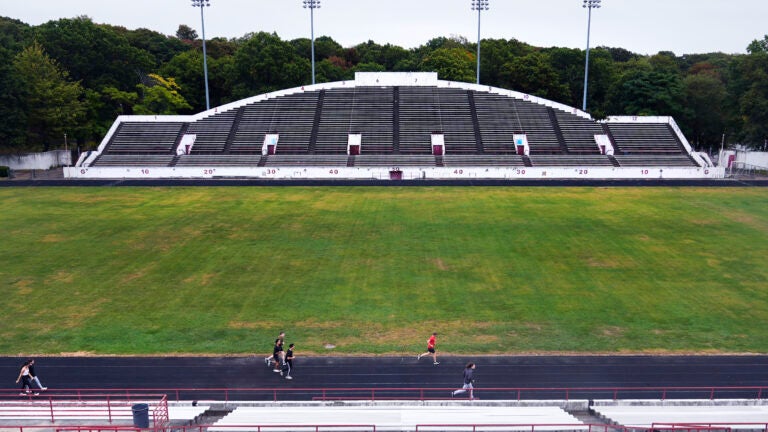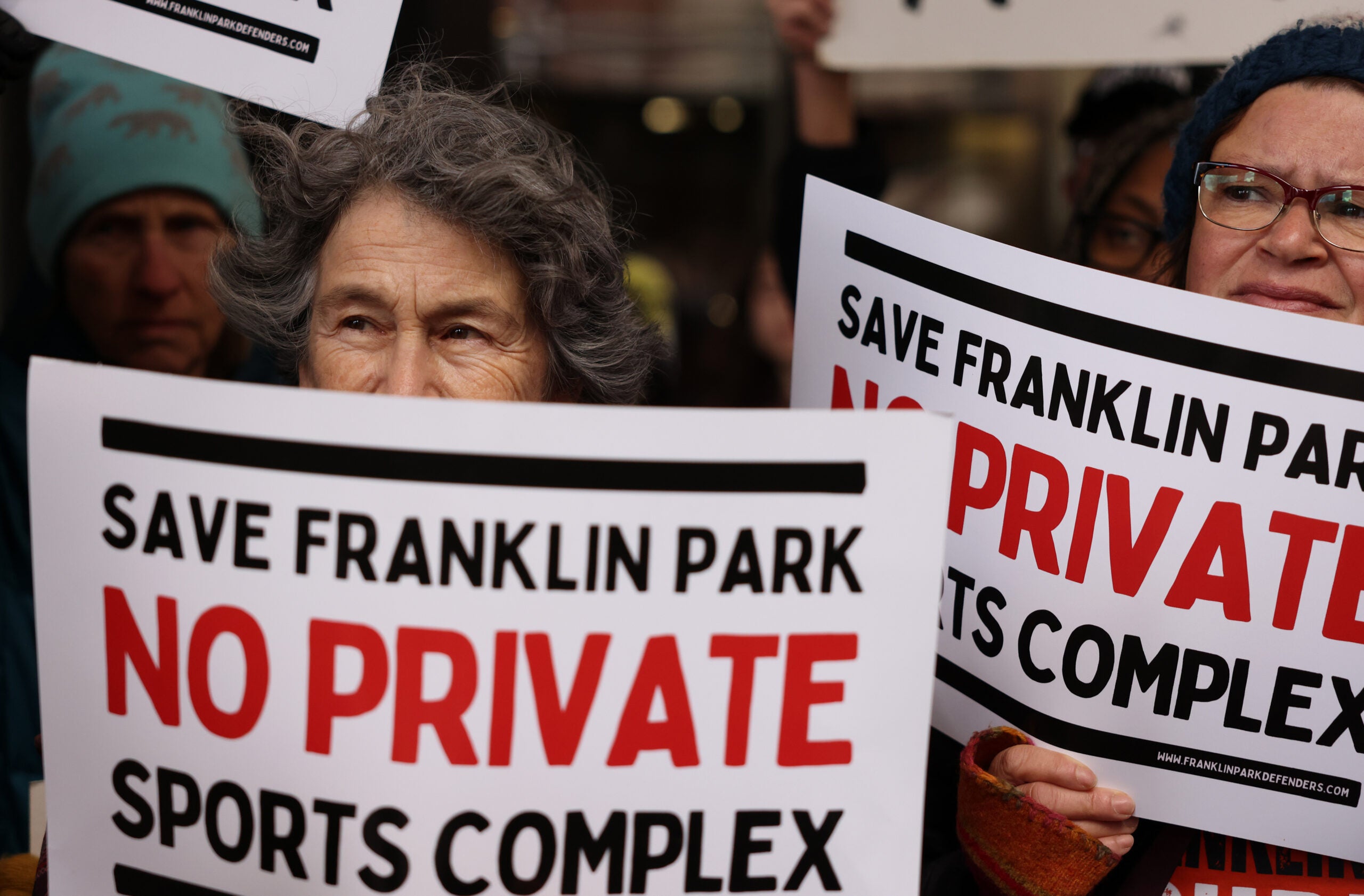Sign up for the Today newsletter
Get everything you need to know to start your day, delivered right to your inbox every morning.

A judge ruled Wednesday that the city’s plan to renovate White Stadium in Franklin Park doesn’t violate state laws, effectively ending a second attempt to halt the ambitious plan.
Boston officials, particularly Boston Mayor Michelle Wu, have pursued the redevelopment of the dilapidated stadium with help from the new NWSL professional women’s soccer team, which will share the stadium with Boston Public Schools students.
In a statement, Wu called the decision “a historic victory.” The courts already sided with the city to let the plan go forward last year, and began this trial by dismissing half of the claims against the city.
The redevelopment relies on a public-private partnership with the team, which will cover the other half of the renovation costs, according to the statement. While the city initially pledged $50 million to the project, their contribution has increased to $91 million.
Wu emphasized that the stadium will be open for use “by BPS students, coaches, and community 15 hours per day, more than 345 days per year.”
“We thank the Superior Court for twice affirming this vital project for our students and community as a year-round facility that will inspire the next generation of Boston students,” Wu said. “Together, after so many years of broken promises, we will give our young people and all our residents the scale of investment and opportunity that Franklin Park and our City deserve.”
Demolition began on the site in January, and the NWSL team is expected to kick off their season in March of next year.
The Franklin Park Defenders, the group behind the lawsuit that includes the Emerald Necklace Conservancy and more than 20 citizens, has been pushing to halt the development for years. The group argues that a fully public stadium would be cheaper (around $29 million, according to their proposal) and would not displace student-athletes.
In court, the group alleged that a private stadium development violates Article 97 of the Massachusetts Constitution. The article requires a state Legislature vote to approve any change in use of public park and recreational land, prompting an environmental review and alternate plans.

But, Judge Matthew Nestor found that “there is not enough evidence to support the proposition that at any point in time, the City expressed a deliberate, unequivocal and decisive intent to permanently place the Stadium Parcel under the protection of Article 97,” he wrote.
The judge ruled that there is no evidence that the City accepted federal conservation funds, had any intent to make White Stadium permanently a public park, or dedicated the park as conservation land.
Emerald Necklace Conservancy President Karen Mauney-Brodek said the group is “deeply disappointed” and plans to assess legal options moving forward.
“This proposal for Franklin Park is the biggest change to public land in Boston and the Emerald Necklace in at least half a century,” Mauney-Bodek said in a statement. “Proposals for public land with such an impact on the public require a true and fair public process, including consideration of alternatives and a robust review under the Massachusetts Environmental Protection Act. This park, and our communities, have been denied that right.”

Molly Farrar is a general assignment reporter for Boston.com, focusing on education, politics, crime, and more.
Get everything you need to know to start your day, delivered right to your inbox every morning.





Stay up to date with everything Boston. Receive the latest news and breaking updates, straight from our newsroom to your inbox.
Conversation
This discussion has ended. Please join elsewhere on Boston.com